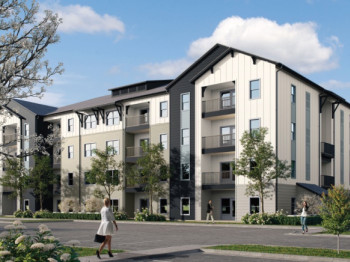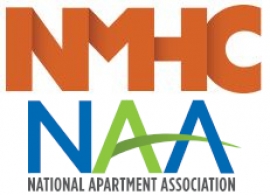Trending Multifamily News
"Although well-meaning, rent control measures do nothing to provide real relief for those they intend to help. The passage of rent control measures in Minneapolis and St. Paul are a true setback for those committed to finding effective solutions to address the cost of housing. Rather than improving the availability of affordable housing, rent control laws exacerbate shortages, cause existing buildings to deteriorate and disproportionately benefit higher-income households. These measures could result in even further instability for Minnesota’s renters and the rental housing market, at large."
The National Multifamily Housing Council (NMHC) and the National Apartment Association (NAA) appreciate President Biden’s prompt and well-intended action to address the ongoing financial struggle of our nation’s 40 million renters.
However, NMHC and NAA continue to raise serious concerns about eviction moratoriums because they do not address underlying financial distress and leave households accumulating insurmountable levels of debt.
We remain heartened by President Biden’s recently announced relief proposal, the “American Rescue Plan,” which includes additional unemployment benefits, increased stimulus checks and an additional $25 billion in rental assistance. These measures will continue to support those households and apartment owners and operators who are unable, through no fault of their own, to meet their financial obligations.
We are deeply concerned that the President’s rescue package includes a 9-month eviction moratorium in addition to the CDC Order extension enacted today. Such policies have been in place for nearly a year while targeted, direct rental assistance took nine months to pass Congress.
Even so, allocated rental assistance funds do not fully address the $70 billion in outstanding debt nor accruing debt moving forward. The industry simply cannot continue operation under these policies without disastrous harm to housing affordability.
We look forward to working together with the Biden Administration and Congress to provide the additional financial support needed to help close the growing gap of tens of billions in rental debt that accumulated in 2020. Additional financial support is urgently needed to prevent displacement, stabilize millions of Americans who continue to struggle under the weight of COVID-19 financial impacts and ensure rental housing providers can continue operations and keep their residents stably housed.
Share of residents who paid in April increased by 5 percentage points compared to last week
The NMHC Rent Payment Tracker is powered by Entrata, MRI Software, RealPage, ResMan and Yardi
The National Multifamily Housing Council (NMHC) found that 89 percent of apartment households made a full or partial rent payment by April 19 in its survey of 11.5 million units of professionally managed apartment units across the country, up 5 percentage points from April 12.
NMHC’s Rent Payment Tracker numbers also examined historical numbers and found that 93 percent of renters made full or partial payments from April 1-19, 2019, and 93 percent of renters in March 1-19, 2020. The latest tracker numbers reflect a payment rate of 95 percent compared to the same time last month. These data encompass a wide variety of market-rate rental properties, which can vary by size, type and average rental price.
“It is encouraging that apartment residents continue to meet their rent obligations whether that’s with the support of the federal relief funds, credit cards and alternative, flexible options provided by the industry’s owners and operators,” said NMHC President Doug Bibby. “But their financial security is unclear as many may not qualify for federal relief, while others are drawing down savings and facing greater financial challenges, including higher health care costs. For that reason, lawmakers need to act now to enact a direct renter assistance program.”
“We are committed to working with our residents as federal relief funds begin flowing,” said David Schwartz, NMHC Chair and CEO and Chairman of Chicago-based Waterton, “But that is happening on very different timetables across the country as states struggle to keep up with unemployment that approaches Great Depression levels. While April rent payments were better than anticipated, clearly, there are significant macroeconomic risks that require lawmakers to provide residents with the resources they need for household essentials such as food, shelter and healthcare.”
The NMHC Rent Payment Tracker metric providers insight into our residents’ financial health over the course of each month, and, as the dataset ages, between months. However, noteworthy technical issues may make historical comparisons imprecise. For example, factors such as varying days of the week on which data are collected; individual companies’ differing payment collection policies; shelter-in-place orders’ effects on residents’ ability to deliver payments in person or by mail; the closure of leasing offices, which may delay operators’ payment processing; and other factors can affect how and when rent data is processed and recorded.
Total unit counts may change as units are leased or vacated and survey methodology is refined.
Prior to the outbreak of the Coronavirus, industry fundamentals remained firm
Robust investment and available capital drove another strong year for the multifamily industry in 2019, as demonstrated by the National Multifamily Housing Council’s (NMHC) just released 2020 NMHC 50, the sector’s chief ranking of the nation's largest apartment owners, managers, developers, builders and syndicators.
Before the outbreak of COVID-19 and the related economic weakening, the multifamily industry and the sector’s fundamentals were as healthy as they had been in years. While there is clearly going to be significant uncertainty in the days to come, the 2020 NMHC 50 highlights that the apartment industry continues to experience significant demand and is well-positioned to return to growth following the pandemic.
MAA (headquartered in Memphis, Tenn.) stayed atop the list of the country’s largest apartment owners with 100,031 apartment homes owned, breaking the 100,000-unit mark for the second consecutive year.
Greystar Real Estate Partners (headquartered in Charleston, S.C.) remained the largest apartment manager with 492,967 apartments under their management, more than double the next firm on the list.
Alliance Residential (headquartered in Phoenix, Ariz.) retained its place as the largest apartment developer with 8,009 apartments started in 2019 — over 1,000 more units started compared to when they first took the top spot last year.
Summit Contracting Group, Inc. (headquartered in Jacksonville, Fla.) kept their spot as the country’s highest-producing apartment builder, starting 9,065 apartments in 2019, nearly 1,500 more units than the next builder on the list.
PNC Real Estate (headquartered in Portland, Ore.) also stayed on top as the nation’s largest apartment tax credit syndicator with 132,179 apartments syndicated.
“Demographic shifts and preference for renting have resulted in continued strong demand and positive performance for the apartment industry,” said Caitlin Sugrue Walter, Vice President of Research for the National Multifamily Housing Council. “As is evident from the growth on this year’s builders and developers lists, the industry is continuing the pace of production to meet the needs of pent-up demand from years past. In addition, apartment transaction volume surpassed $100 billion for what’s now the seventh consecutive year.”
Additional Industry and NMHC 50 Highlights:
- 2,210,931 – Number of total units owned by NMHC 50 top owners, representing 10.1 percent of the total U.S. apartment stock.
- 3,617,624 – Number of units collectively managed by NMHC 50 top managers, breaking the record for the 12th consecutive year and equating to 16.5 percent of the total U.S. apartment stock.
- 95.8 percent – 2019 apartment occupancy rate according to RealPage, the highest since 2000.
- 343,200 – Number of apartments completed in 2019 according to the Census Bureau, which is 7,600 units (or 2.3%) higher than 2018.
- 249,721 – Net absorptions in 2019 according to RealPage, a 17.3 percent drop from the highs seen last year.
- $183.5 billion – Total multifamily transaction volume in 2019 according to Real Capital Analytics, a record high.
This is the 31st annual edition of the NMHC 50 rankings. NMHC partners with Kingsley Associates, a leading real estate research and consulting firm, to conduct the research for the NMHC 50. All apartment owners, managers, developers, builders and syndicators are invited to answer a survey questionnaire that asks about their prior year's activities. Apartment owners, managers and syndicators are ranked based on their portfolio holdings (either owned, managed or syndicated) as of January 1, 2020, while developers and builders are ranked based on the number of apartment units started in 2019.
View the full rankings here: nmhc.org/the-nmhc-50
The National Multifamily Housing Council (NMHC) found a 12-percentage point decrease in the share of apartment households that paid rent through April 5, in the first review of the effect of the COVID-19 outbreak on rent payments. The Tracker found 69 percent of households had paid their rent by April 5; this compares to 81 percent that had paid by March 5, 2020, and 82 percent that had paid by the same time last year.
“The COVID-19 outbreak has resulted in significant health and financial challenges for apartment residents and multifamily owners, operators and employees in communities across the country,” said Doug Bibby, President of NMHC. “However, it is important to note that a large number of residents met their obligations despite unparalleled circumstances, and we will see that figure increase over the coming weeks. That is a testament to the quick, proactive actions taken by NMHC members who put forward bold solutions.”
The NMHC Rent Payment Tracker reflects data from 13.4 million units across the country. The Tracker will be updated on a weekly basis with new data released every Wednesday.
NMHC and its data partners are committed to providing comparable data for context. However, noteworthy technical issues may make historical comparisons imprecise. For example, factors such as varying days of the week on which data are collected; individual companies’ differing payment collection policies; shelter-in-place orders’ effects on residents’ ability to deliver payments in person or by mail; the closure of leasing offices, which may delay operators’ payment processing; and other factors can affect how and when rent data is processed and recorded.
Register for today's NMHC Rent Tracker Payment webinar here.
Find more information on the NMHC Rent Payment Tracker here.
|
The CEO, Chairman and Co-Founder of Waterton Outlines His Views on the Future of the Industry |
|
The National Multifamily Housing Council (NMHC) today elected David Schwartz, CEO, Chairman and Co-Founder of Waterton, to serve a two-year term as the Council’s chair at its Annual Meeting.
|
|















